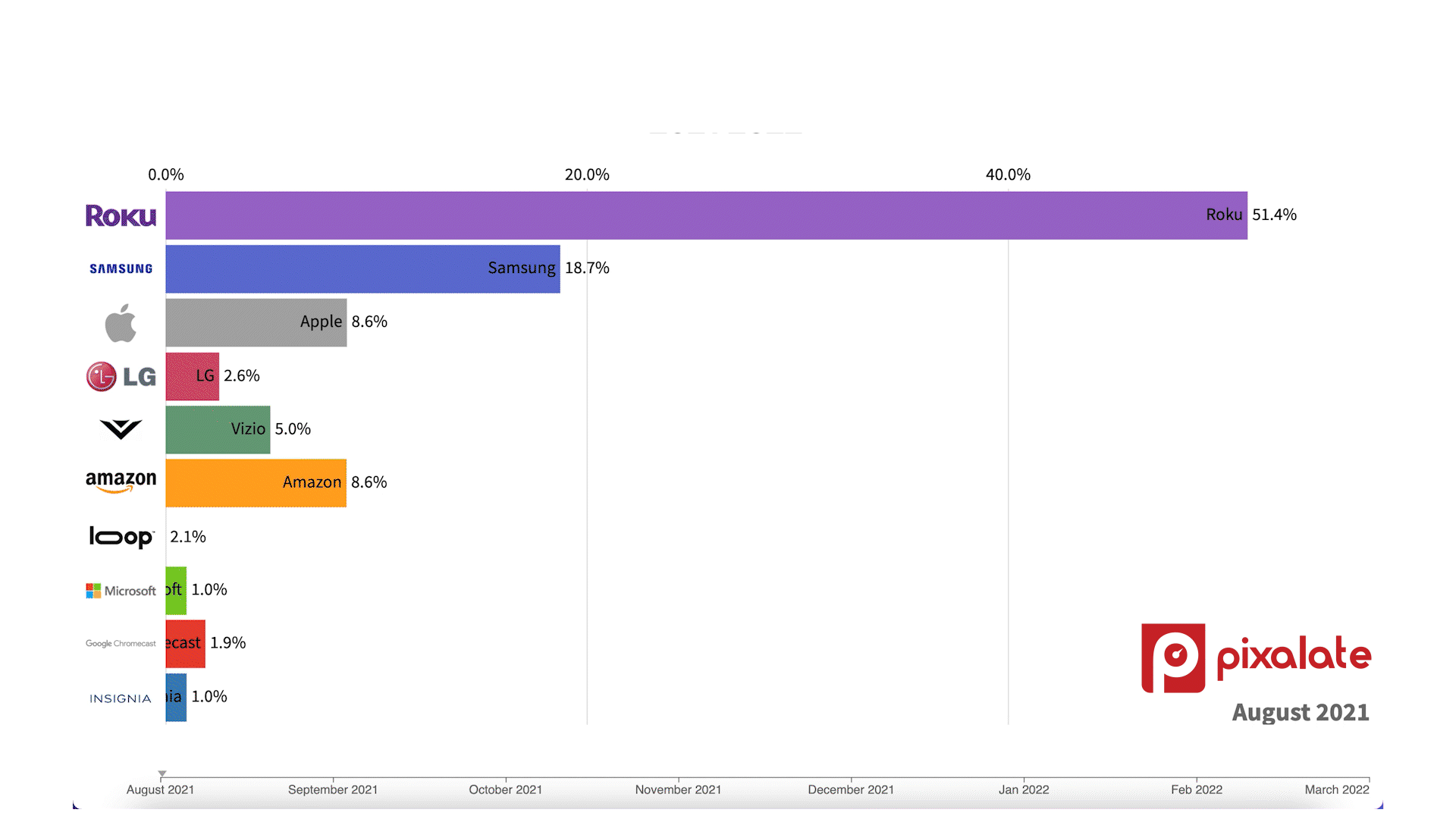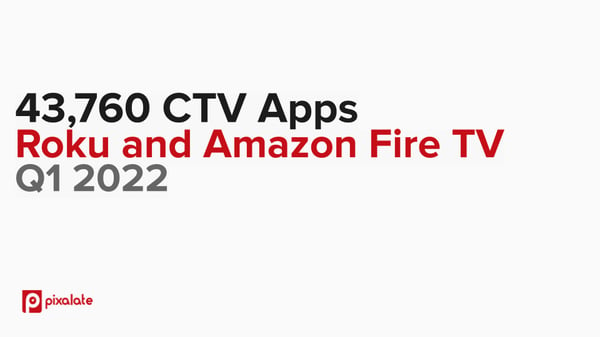
This week's review of ad fraud and privacy in the digital advertising space.

Roku and Samsung continue to make up 67.4% of the NA market. According to Pixalate’s latest release in CTV trends in March 2022, Roku remains the clear dominant CTV device leader in North America, but Samsung has recently gained some ground. The two stores combined make up 67.4% of the CTV device market in NA.

According to Pixalate’s data, there are over 43,000 active CTV apps across Roku and Amazon Fire TV, as of the end of Q1 2022.

A team from Pixalate attended this year’s International Association of Privacy Professionals (IAPP) conference in Washington, D.C. earlier this week. Senior Vice President of Public Policy, Ads Privacy and COPPA Compliance Allison Lefrak was a featured speaker, discussing the future of children’s privacy and the steps Pixalate is taking to address evolving concerns.

AdExchanger published an article about the challenges tech companies face in complying with children’s privacy laws. When discussing COPPA, the author notes that there is one very large loophole companies have been using in the 1998 landmark privacy law– “a knowledge exception, meaning the operators of general audience sites or apps are only covered by the law if they have actual knowledge that children under 13 are sharing their personal information without parental consent.”

Jordan Shapiro of the Progressive Policy Institute penned an op-ed in The Hill calling out the “lack of teeth” in terms of enforcement in COPPA as it stands. She notes the proposed PROTECT Kids Act and the Children and Teens’ Online Privacy Protection Act as efforts to rightly improve the quarter-century old COPPA, but notes that “a narrow emphasis on children’s privacy misses the mark in addressing online privacy concerns for children and all citizens.”
She says that by only focusing on children’s privacy in future legislation, Congress is missing an opportunity to protect everyone, noting that large data repositories of adults’ data will undoubtedly contain children’s data as most platforms require only a user state their age rather than go through a verification process. She said this would make children’s data less safe.
*By entering your email address and clicking Subscribe, you are agreeing to our Terms of Use and Privacy Policy.
These Stories on Weekly Recaps
*By entering your email address and clicking Subscribe, you are agreeing to our Terms of Use and Privacy Policy.

Disclaimer: The content of this page reflects Pixalate’s opinions with respect to the factors that Pixalate believes can be useful to the digital media industry. Any proprietary data shared is grounded in Pixalate’s proprietary technology and analytics, which Pixalate is continuously evaluating and updating. Any references to outside sources should not be construed as endorsements. Pixalate’s opinions are just that - opinion, not facts or guarantees.
Per the MRC, “'Fraud' is not intended to represent fraud as defined in various laws, statutes and ordinances or as conventionally used in U.S. Court or other legal proceedings, but rather a custom definition strictly for advertising measurement purposes. Also per the MRC, “‘Invalid Traffic’ is defined generally as traffic that does not meet certain ad serving quality or completeness criteria, or otherwise does not represent legitimate ad traffic that should be included in measurement counts. Among the reasons why ad traffic may be deemed invalid is it is a result of non-human traffic (spiders, bots, etc.), or activity designed to produce fraudulent traffic.”

